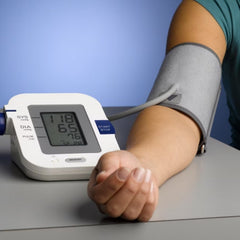5 Warning Signs of Heart Function Decline You Shouldn’t Ignore
Table of Contents:
The heart beats approximately 100,000 times a day, pumping blood throughout the body to sustain life. When its function declines, it doesn’t stop suddenly; instead, it sends out warning signs like an aging machine—such as shortness of breath and swelling. Recognizing these signals early is crucial for protecting heart health and preventing life-threatening conditions.

Five Major Warning Signs of Heart Function Decline
Persistent Shortness of Breath
If you frequently experience difficulty breathing, especially while resting or doing light activities, it may indicate heart dysfunction. When the heart struggles to pump blood efficiently, fluid can accumulate in the lungs, disrupting gas exchange and leading to shortness of breath. Unlike normal breathlessness that improves with rest, this type tends to persist and may worsen when lying flat at night. It could be a sign of heart failure, requiring immediate medical evaluation to avoid missing the best treatment window.
Irregular Heartbeat
An unusually fast, slow, or erratic heartbeat could be a sign of arrhythmia, a condition caused by abnormal electrical activity in the heart. Severe cases may lead to fainting or even sudden cardiac arrest. Those who experience heart palpitations after fatigue, alcohol consumption, smoking, or drinking strong tea should be particularly cautious. An electrocardiogram (ECG) or Holter monitor can help detect any irregular heart activity and guide appropriate treatment.
Unexplained Fatigue
Persistent fatigue that doesn’t improve with rest may indicate inadequate blood circulation due to weakened heart function. Since the heart supplies oxygen-rich blood to all organs, any impairment can lead to reduced energy levels. If fatigue is accompanied by chest tightness or shortness of breath, it’s essential to consider possible conditions like anemia, thyroid disorders, or heart failure. A thorough medical checkup is recommended to identify the underlying cause.
Swelling and Rapid Weight Gain
Swelling, particularly in the lower legs, is another key warning sign of heart dysfunction. When the heart’s ability to pump blood weakens, circulation slows, causing fluid to accumulate in tissues. This fluid retention can also lead to sudden weight gain over a short period. Unlike kidney-related swelling, heart-related swelling often leaves an indentation when pressed and takes longer to recover. If these symptoms appear, a cardiac ultrasound or blood test can help determine if the heart is the underlying cause.
Chest Pain and Discomfort
When the heart lacks sufficient blood flow, it may cause pain or discomfort in various forms, including chest pain, tightness, or radiating pain to the jaw, neck, shoulders, or back. Angina, a common symptom of coronary artery disease, usually worsens after physical exertion and improves with rest, lasting about 3 to 5 minutes. However, persistent chest pain requires urgent medical attention to rule out a possible heart attack. An ECG or coronary angiography can help diagnose the condition.
How to Respond to Heart Warning Signs
Recognizing these warning signs is only the first step; knowing how to respond is equally important:
- Stay calm. Anxiety can further strain the heart.
- Stop any activity immediately, rest in place, and observe symptoms. If symptoms persist or worsen, seek emergency medical help without delay.
- Adopt a heart-healthy lifestyle. A balanced diet, regular exercise, smoking cessation, alcohol moderation, weight control, and stress management all contribute to maintaining a healthy heart.
Simple Tests to Assess Heart Health
If you’re curious about your heart’s condition, try these simple self-tests. However, elderly individuals should be cautious and consider their physical limitations before attempting them.
Resting Heart Rate Test
Upon waking up, remain in bed and use your index and middle fingers to feel your pulse on your wrist. Count the beats for one minute. A normal resting heart rate for adults is between 60 and 100 beats per minute. Consistently falling below 50 or above 100 may indicate a heart issue that requires medical attention.
Breath-Holding Test
Take a few normal breaths, then inhale deeply and hold your breath while timing the duration. Healthy adults can typically hold their breath for 30 to 60 seconds. If you struggle to reach this range, it may suggest compromised heart and lung function.
Post-Exercise Recovery Test
Perform rapid in-place jumps for one minute, then stop immediately and check your pulse. Record your heart rate at the 1-minute and 2-minute marks after stopping. A normal heart should decrease by more than 20 beats per minute within the first minute and return close to its resting rate within 2 to 3 minutes. Slow recovery may indicate weak heart function.
Squat Test
Stand with your feet shoulder-width apart, then slowly squat until your thighs are parallel to the floor and stand back up. Repeat 10 to 15 times. If you experience heart palpitations, shortness of breath, chest tightness, or dizziness, your heart may lack adequate functional reserve.
These self-tests provide only a preliminary assessment and cannot replace professional medical diagnosis. If you notice abnormalities or experience any heart-related symptoms, seek medical attention promptly for a comprehensive heart evaluation.
The Role of CoQ10 in Heart Health

Coenzyme Q10 (CoQ10) is a vital antioxidant that plays a crucial role in supporting heart health. As a key component in cellular energy production, CoQ10 helps maintain the proper function of the heart muscle, which requires a significant amount of energy to pump blood efficiently. Additionally, CoQ10 possesses strong antioxidant properties that protect cells from oxidative stress, reducing the risk of cardiovascular diseases. Studies suggest that CoQ10 supplementation may benefit individuals with heart conditions such as heart failure, high blood pressure, and coronary artery disease by improving energy metabolism and enhancing overall heart function.





